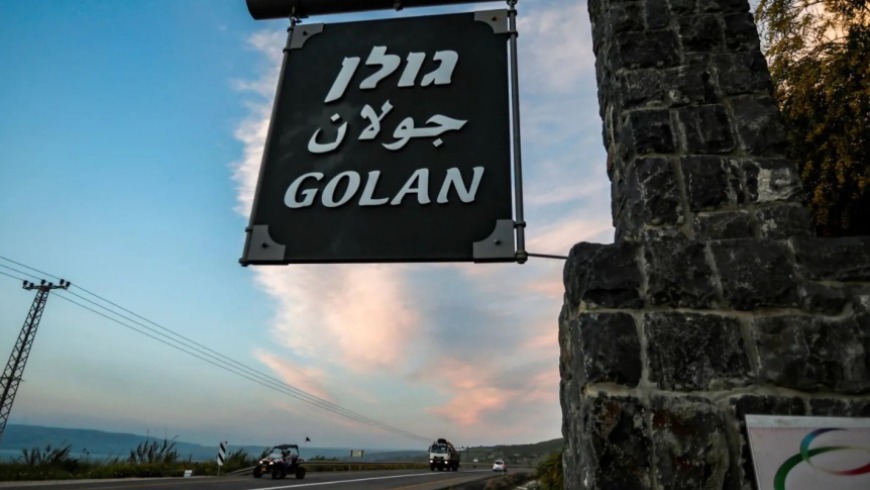Reports and media leaks are mounting concerning secret negotiations between the new Syrian administration and Israel, including discussions in Azerbaijan, the UAE, and other backchannels. These talks reportedly aim to establish frameworks for Syrian-Israeli security and military cooperation, particularly in response to repeated Israeli incursions and strikes violating Syrian sovereignty following the fall of Bashar al-Assad’s regime.
Despite Israel’s overtly hostile rhetoric toward President Ahmed al-Sharaa’s administration—Prime Minister Netanyahu and his foreign and defence ministers have made no effort to hide their scepticism or threats—something significant appears to be developing behind the scenes. It is widely believed that the United States is orchestrating a potential Syrian-Israeli peace agreement, potentially paving the way for Syria’s entry into the Abraham Accords.
From the Israeli perspective, Syria’s current weakness presents a rare and historic opportunity. Reports suggest that the deal on the table includes full normalisation, encouraged strongly by Washington, which is also pushing for Damascus and Riyadh to join the broader regional agreement.
However, Israel is unlikely to relinquish the Golan Heights in exchange for peace. According to a report by Al-Araby Al-Jadeed (29 June 2025), one floated proposal involves turning the Golan into a “peace park.” Syrian analyst Radwan Ziadeh has dismissed this as an outdated suggestion, and others quoted in the same report argue that Syria’s new administration lacks both legitimacy and authority to pursue such a deal. Public sentiment in Syria remains strongly opposed to any agreement that does not include the full return of the territories occupied in 1967.
How seriously should we take these leaks? To what extent do they reflect actual negotiations, or are they tactical signals in a wider geopolitical game?
The Syrian Administration’s Position and Motivations
The Syrian leadership’s stance is pragmatic: it seeks to avoid military confrontation with Israel and is actively sending both direct and indirect signals to that effect, according to multiple sources.
It has become increasingly evident that Israel is pursuing an aggressive agenda in Syria, aiming to perpetuate instability and prevent the emergence of a cohesive post-Assad state. For its part, the new Syrian government is keen to dissociate itself from jihadist ideology. Its priorities are domestic: rebuilding infrastructure, lifting economic sanctions, and unifying the fractured country. Engaging in a military conflict with Israel is neither feasible nor desirable at this juncture.
Syria, in practical terms, has no army. Israeli strikes have dismantled the remnants of the former regime’s military capabilities, and the new leadership recognises it cannot rebuild an effective force anytime soon. Their current strategy, therefore, appears focused on gaining time and neutralising the Israeli threat to concentrate on urgent internal challenges.
While such a strategy is understandable, reports suggest that Syria is being asked to pay a steep price for this reprieve: deep normalisation with Israel as a precondition for lifting sanctions and launching reconstruction initiatives. However, this scenario is deeply intertwined with other unresolved issues—chief among them the Israeli-Palestinian conflict.
Progress on the Syrian-Israeli track is contingent on Israeli flexibility over the Palestinians’ core demands: sovereignty, the status of Jerusalem, land rights, and settlements. The Israeli government, under Netanyahu or otherwise, would need to reverse Knesset legislation opposing a Palestinian state—an unlikely move.
Similarly, Palestinians would need to accept controversial concessions, such as relinquishing East Jerusalem as their capital or recognising Israeli annexation of parts of the West Bank. All of this places Syrian-Israeli peace talks within a broader and highly volatile regional matrix.
A major stumbling block remains the Golan Heights. Despite American pressure, there is little indication that Israel is prepared to return the territory to Syria. Nevertheless, U.S. Middle East envoy Steve Witkoff has hinted that a significant opportunity exists for both Syria and Lebanon to join the Abraham Accords.
Could Sharaa Make Peace with Israel?
With no viable army, Syria’s leadership appears focused on buying time and avoiding conflict with Israel while it addresses urgent internal priorities.
But if one sets aside the current constraints and assumes that a regional agreement—linking Saudi-Israeli normalisation with a Golan deal—could be realised, another hypothetical emerges: Could Ahmed Sharaa, a man with a Salafi-jihadist background, sign a peace agreement with Israel?
The answer, surprisingly, could be yes.
Arab diplomatic sources recount a telling anecdote: during a private meeting, Sharaa asked a senior Arab political figure for his opinion on the late Egyptian President Anwar Sadat. The question was unexpected, but revealing. Sharaa reportedly described Sadat’s decision to sign the 1979 peace treaty with Israel as “courageous.”
Though this notion may shock many, two factors warrant consideration:
- Sharaa has demonstrated extraordinary pragmatism and political realism. He has taken steps previously deemed unthinkable, defying ideological boundaries that many Arab leaders would not dare cross. Under the right circumstances—a viable formula on the Golan, regional support, and strategic benefits for Syria—it is not implausible that he would pursue peace.
- Salafi political jurisprudence is, paradoxically, often more pragmatic than that of the Muslim Brotherhood. It is more tightly anchored in the logic of interests and harm minimisation, and less burdened by the political legacies and ideological rigidity associated with Brotherhood movements. This distinction merits deeper exploration.
This article was translated and edited by The Syrian Observer. The Syrian Observer has not verified the content of this story. Responsibility for the information and views set out in this article lies entirely with the author.


